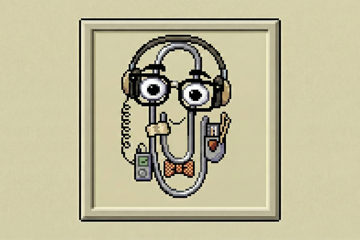The late Indian guru Sai Baba, one of world's wealthiest and most influential cult leaders, once gave Pier Carthew a watch. “He made it appear, like magic,” says Carthew. “I'll show you how it's done.” An old magician's trick, the object is hidden in the palm of the hand. “He made it symbolic,” continues the performer, whose parents were devotees of the guru and who raised their son accordingly. “He told me that 'watch' stood for 'words, action, thought, character, heart' – that is how I would remember.”
Being brought up in a cult hasn't left Carthew bitter; on the contrary, he is about to use the experiences of his extraordinary past by performing in a theatre production, Miracle Man, a show he has co-devised with Nicola Gunn (of At The Sans Hotel fame). Sai Baba died in 2010; allegations of child sexual abuse had been levelled against him, amongst other things, but Carthew, who first visited the ashram at the age of four, remembers him as charismatic and funny. “He didn't make a lot of logical sense but he had a real sense of humour,” the actor continues. “He was cryptic; devotees spent a lot of their lives decoding his sayings. Plus his miracles were so cunning; we thought he must have had some kind of power.” Sai Baba's devotees still number around 30 to 40 million people. Sexual abuse, notes Carthew, can become justified in devotees' minds as being part of a 'healing or tantric' ritual.
According to its two creators, Miracle Man's subject matter means the story suggested its own form. “It's very absurd,” says Gunn. “Pier's story and experience of India means that the show has got to have some crazy stuff, the grotesque and bizarre are naturally present. Some things are highly exaggerated and we have asked ourselves if we've gone too far; are we bordering on the inappropriate?” What might be inappropriate? “Pier plays some Indian characters,” Gunn responds. “People get nervous.”
As well as exploring personal stories, the show takes a look at the innate corruption of the business side of the cult. “$6.9 million in cash and gold was found in Sai Baba's bedroom after he died,” notes Carthew. “There is a lot in the play about the politics of the organisation, how it is run in India, and its relationship with the government. The president of India is a devotee.”
Don't miss a beat with our FREE daily newsletter
In form, Miracle Man partly nods to the mockumentary, featuring a cameo by Gunn as an interviewer. Carthew plays a set of characters, all inspired by people he remembers, including a version of his younger self. One of the characters in the play, Phil, is based on the man who founded the Hard Rock Café and who donated $40 million to the guru. Carthew and Gunn describe the making of Miracle Man as a very joyful process. “I've had to really think about what this means to me,” reflects Carthew. “It's had its difficult moments but I can honestly say it's the best fun I have ever had.”
It's been a long time since Pier Carthew distanced himself from the beliefs of his childhood but some things haven't left him. “Even now, if I get into an awkward situation I find myself asking for Sai Baba's help,” he says. “I hear that voice in my head.”
Miracle Man plays from Tonight (Wednesday) until Sunday 13 May (no shows Monday and Tuesday), La Mama















